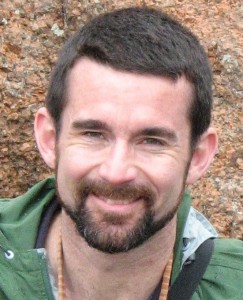 “Struggling is the meaning of life. Victory and defeat are in the hands of God, so one must enjoy in struggling.”
“Struggling is the meaning of life. Victory and defeat are in the hands of God, so one must enjoy in struggling.”
The saying above the doorway caught my attention as I settled in at my friend’s home for a weekend visit. I was a medical student, rotating at a mission hospital in rural Africa, and was visiting a friend in rural Kenya for the weekend. It was my first time away from the hospital for more than a day after arriving a few weeks prior, and it helped me frame my reflections on everything from treating patients with life stories far different from mine, working in far different conditions than my medical school in suburban Milwaukee, and even dealing with the same mundane challenges faced at home of call scheduling, prioritizing theatre time, and figuring out exactly what the supervising physician was expecting.
I’d not thought about the saying for a long time, until a discussion with colleagues recently around the emotional challenges and rewards of struggling through organ donation decisions with a family who has lost a loved one. In such a hard time, when all seems lost, the struggle to bring good out of death is emotionally exhausting, but has its own inherent rewards if done well, with dignity, respect, and compassion.
Always one for a good reference (I like to know where ideas come from), I decided to hunt down the origin of the “enjoy in struggling” aphorism. An internet search did not point me to its origin, but revealed that the saying continues to be popular in Kenya, and also pointed me to an interesting essay by Kenny Moore on Kenyan runners—from 1990, before the world famous Kenyan runners were “World Famous Kenyan Runners.”
Running is indeed its own kind of struggle. I’ve been at least a casual runner since college, and it was not until I finally ran my first marathon (Dublin in 2008) that I got into racing. Since then, I’ve found that if I train REALLY hard, and have a good day, I might have a chance at placing—in shorter local races, if the field is small enough, I stand a small chance of placing in my age group. In the marathon, placing is way beyond my reach and I’m happy just to finish. I would like some day to beat my “PR” (personal record), which I set in that first marathon in 2008 and have not equalled since. I’ve had some attempts that have come close, and some that have not gone so well, and one near complete disaster—but I’ve not yet equalled my PR.
Does that invalidate or diminish the joy of running for me? It’s been disappointing a few times, but then the next time I’m out running, I remember that the real reason I run is not the races, or the “PR’s”, but for the joy of running. Whether it is the beauty of running Grandma’s Marathon along the north shore of Lake Superior, or my run this morning with temperatures hovering near -20C, frost building on my face, but under a cloudless sky with a nearly full moon lighting up the snow covered ground, the joy of running—is the running.
Likewise in medicine, we need to remember that the joy, fundamentally, comes through the struggle. Yes, outcomes matter—whether in terms of lives saved, suffering relieved, or compassion given. And in medicine, hard and diligent work is required, precisely because the outcomes on the line are matters of life and death. Still, sometimes the best hard work and diligence will seem not to pay off. No matter how hard we work, people will still get sick, patients will die, suffering will happen—because we are limited and finite beings, and we are not God.
Whatever one’s epistemology or theology, we need to be reminded that victory and defeat are not, fundamentally, in our hands. We can work towards them, but they are not in the end, always within our control to grasp. Rather, struggling is part of the meaning of life, and in medicine we are called to compassionately struggle with our patients—so we should “enjoy in struggling.”
Competing interests: I declare that I have read and understood BMJ policy on declaration of interests and I have no relevant interests to declare.
William E Cayley Jr practices at the Augusta Family Medicine Clinic; teaches at the Eau Claire Family Medicine Residency; and is a professor at the University of Wisconsin, Department of Family Medicine.
